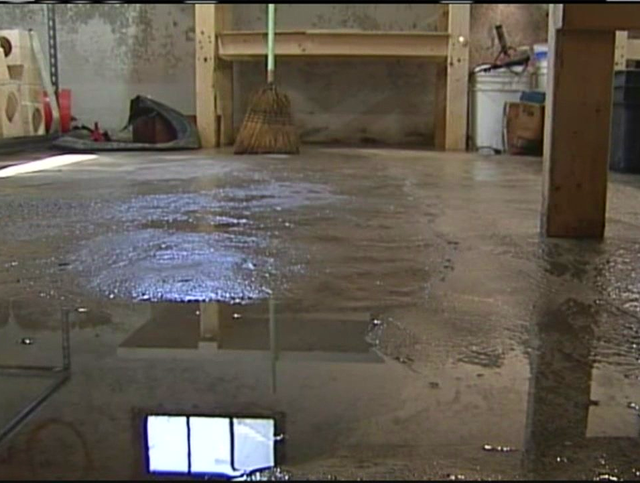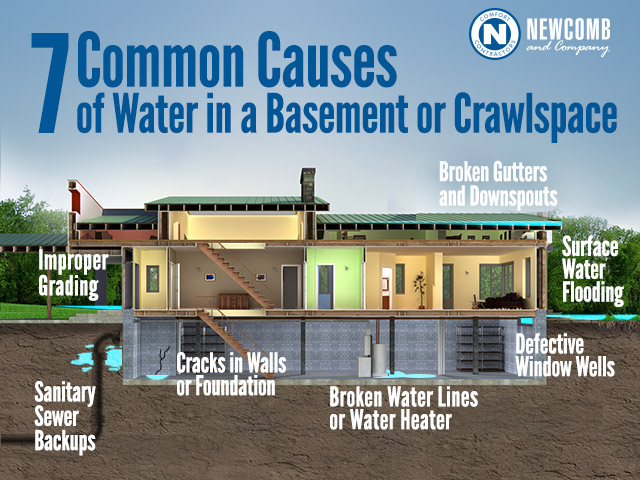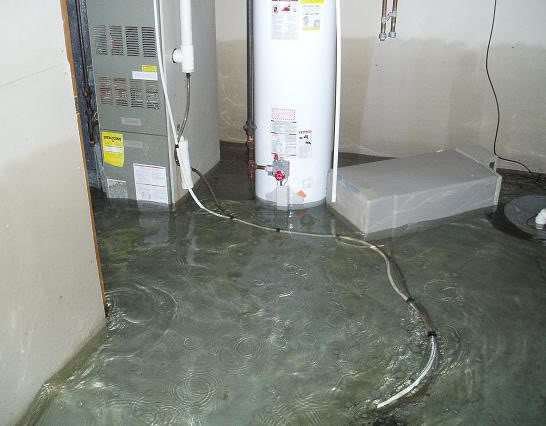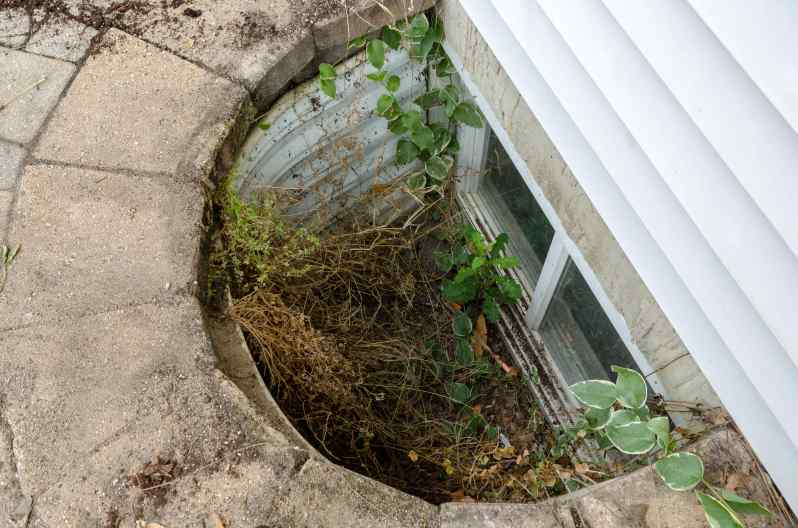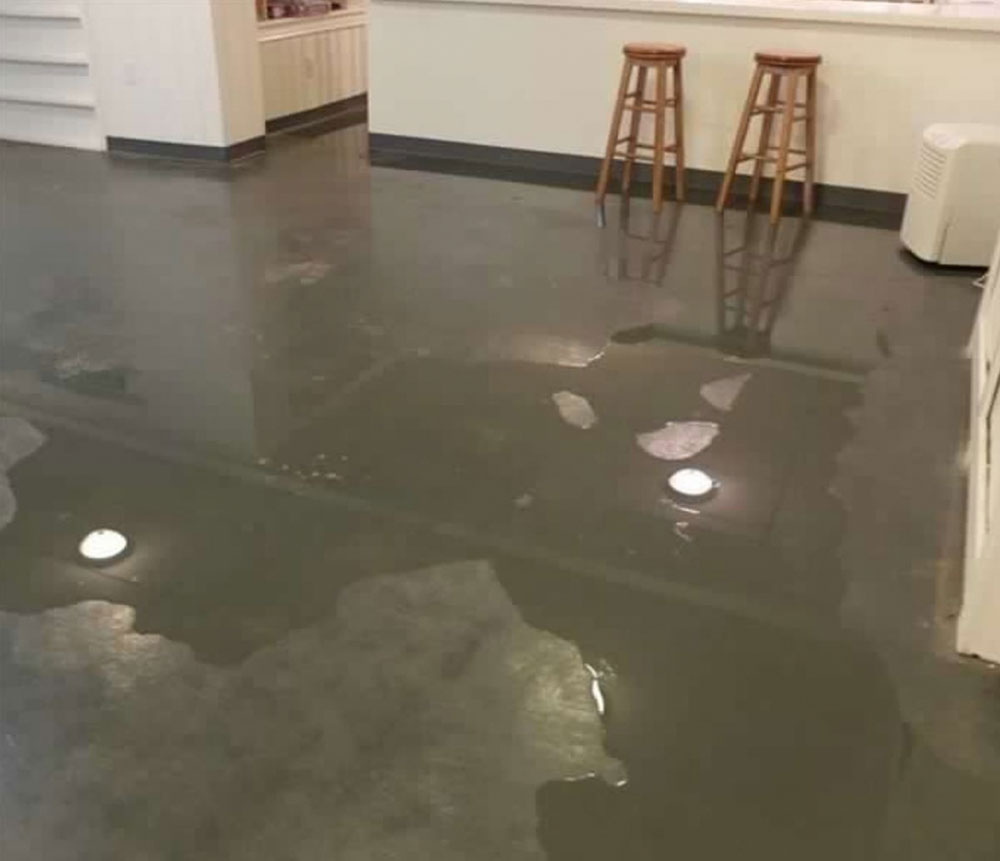Dealing with water in the basement can be a frustrating and concerning issue for homeowners. Not only can it damage belongings stored in the basement, but it can also lead to structural damage and mold growth. Understanding the causes of water in the basement floor is essential in addressing the problem effectively. Here I provide a straightforward guide to understanding the common causes of water in the basement floor and offer some insights on tackling them.
Poorly sealed foundation walls or floor cracks: One of the primary causes of water in the basement floor is poorly sealed foundation walls or floor cracks. Over time, the foundation may develop small cracks or gaps that allow water to seep through the concrete. Additionally, if the basement walls were not properly waterproofed during construction or if the waterproofing has deteriorated over time, water can find its way into the basement.
Inadequate drainage: Insufficient or improper drainage around the foundation can contribute to water in the basement. When rainwater or melting snow does not drain away from the house effectively, it can accumulate around the foundation and seep into the basement through the floor or walls. Poorly installed or clogged gutters, downspouts, and inadequate grading can all contribute to water pooling near the foundation.
Hydrostatic pressure: Hydrostatic pressure occurs when water accumulates in the soil around the foundation, exerting pressure against the basement walls and floor. This pressure can force water through even the tiniest cracks or gaps, leading to water infiltration in the basement.
Plumbing leaks: Leaking pipes or plumbing fixtures in the basement can also result in water on the basement floor. A leaking water supply line, drain pipe, or even a malfunctioning sump pump can contribute to water accumulation in the basement.
Exterior factors: External factors such as heavy rainfall, flooding, or a high water table can cause water to seep into the basement floor. These situations are often beyond the homeowner’s control, but implementing preventive measures like proper drainage and waterproofing can help minimize the impact.
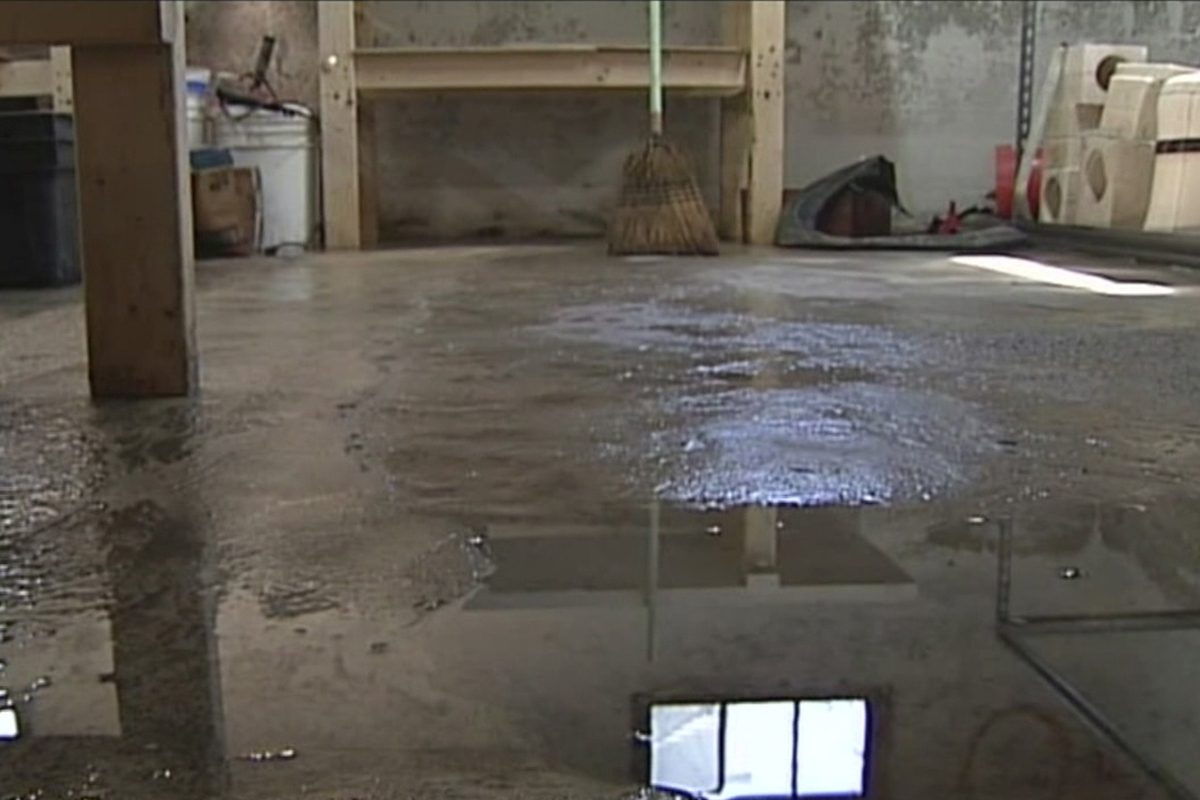
Can I fix basement water issues myself?
Depending on the severity and cause of the water issue, some homeowners may be able to address minor water problems themselves. For example, sealing small cracks with hydraulic cement or applying waterproofing paint may help. However, it is advisable to consult a professional waterproofing contractor who can assess the situation and recommend appropriate solutions for more significant or recurring issues.
How can I prevent water from coming into my basement?
Ensure that the foundation walls and floors are properly sealed and maintained to prevent water from coming into your basement. Regularly inspect and repair any cracks or gaps. Implement effective exterior drainage solutions, such as proper grading, functioning gutters, and downspouts that direct water away from the foundation. Installing a sump pump and considering the use of interior or exterior waterproofing systems can also be beneficial.
Is mold a concern if I have water in my basement?
Yes, water in the basement can lead to mold growth, as basements often provide the ideal conditions for mold to thrive. Mold can cause health issues and further damage to the structure. It is crucial to address the water problem promptly and address any existing mold growth by seeking professional assistance for proper remediation.
How much does it cost to fix basement water issues?
The cost of fixing basement water issues can vary greatly depending on the cause, severity, and necessary repairs. Simple fixes like sealing cracks may be inexpensive, while more extensive waterproofing measures or foundation repairs can be costly. It’s best to consult with waterproofing professionals to assess the situation and provide an accurate cost estimate.
Can I use a dehumidifier to solve basement water problems?
A dehumidifier can help manage moisture levels in the basement, but it is not a solution for addressing water infiltration issues. While it can reduce humidity and prevent mold growth, it won’t solve the underlying cause of water on the basement floor. It is important to identify and address the source of the water problem to resolve the issue effectively.
Water in the basement floor can stem from various causes, including foundation cracks, inadequate drainage, hydrostatic pressure, plumbing leaks, and external factors. Understanding the root cause is essential in finding the right solution. Whether it requires DIY measures or professional assistance, addressing basement water issues promptly can prevent further damage, protect your belongings, and ensure a dry and healthy basement environment.
7 Potential Causes of Water in Your Basement
Why is Water Coming Up Through My Basement Floor After Heavy Rain?
Wet Basement Solutions: How to Stop the Leaks From Happening
Water in the Basement What to Do, Causes u0026 Prevention
Why is Water Coming Up From the Basement Floor? – Aquamaster Plumbing
How to Fix a Wet Basement Floor U.S. Waterproofing
Cracked Concrete in Basement Floor Prevention u0026 Waterproofing OBA
9 Reasons Your Basement Might Leak in the Winter in Gaithersburg
6 Cause Of Water in Your Basement and How To Keep It Out
How to stop water from coming up through the basement floor
Related Posts:
- Black Mold On Basement Floor
- DIY Concrete Basement Floor
- Cleaning Cement Basement Floor
- Affordable Basement Flooring
- DIY Basement Floor Painting
- Flooring Tiles For Basement
- Cold Basement Floor Ideas
- Basement Floor Insulation Panels
- Best Flooring For Basement Floor
- Basement Floor Paint
